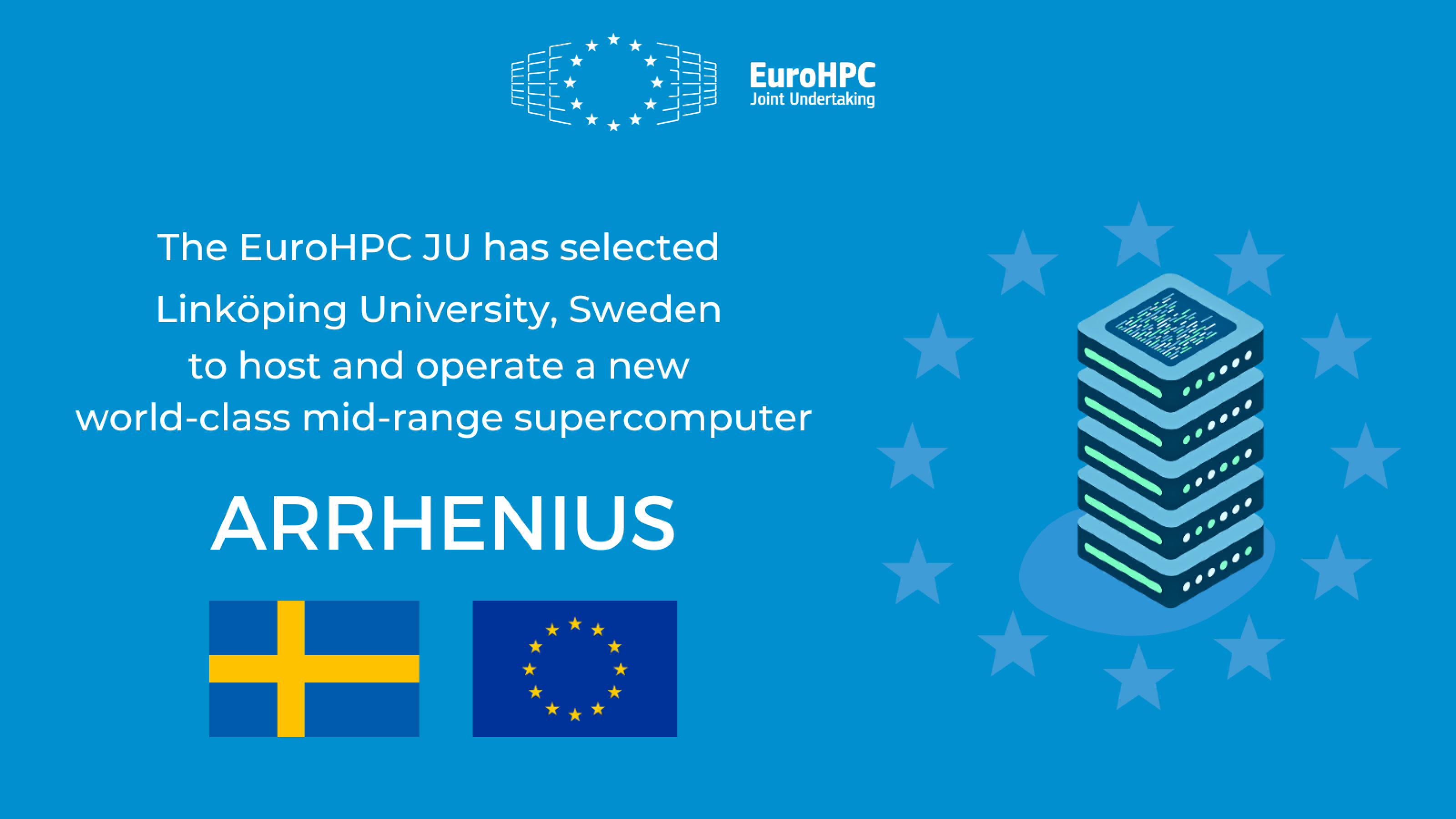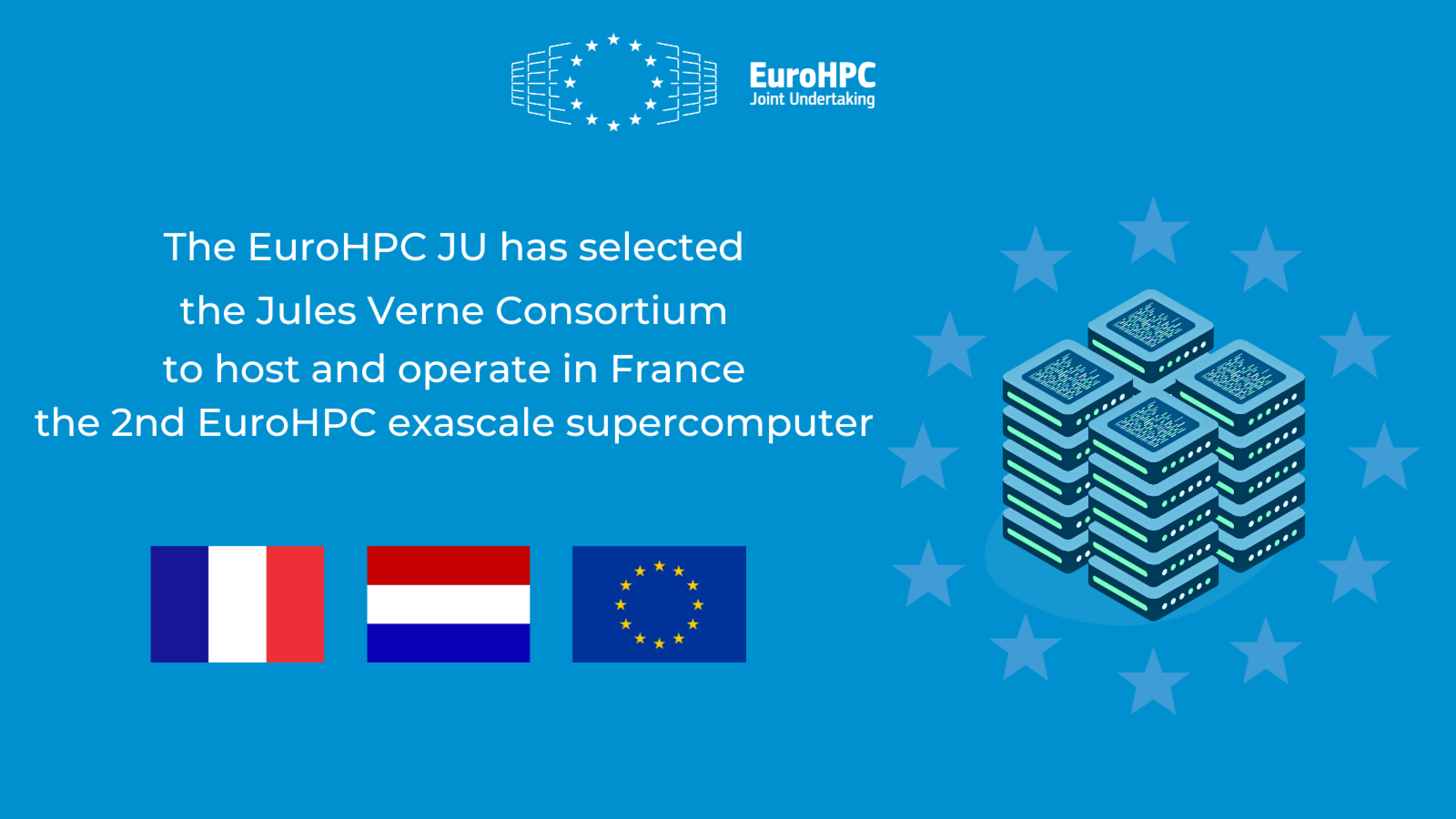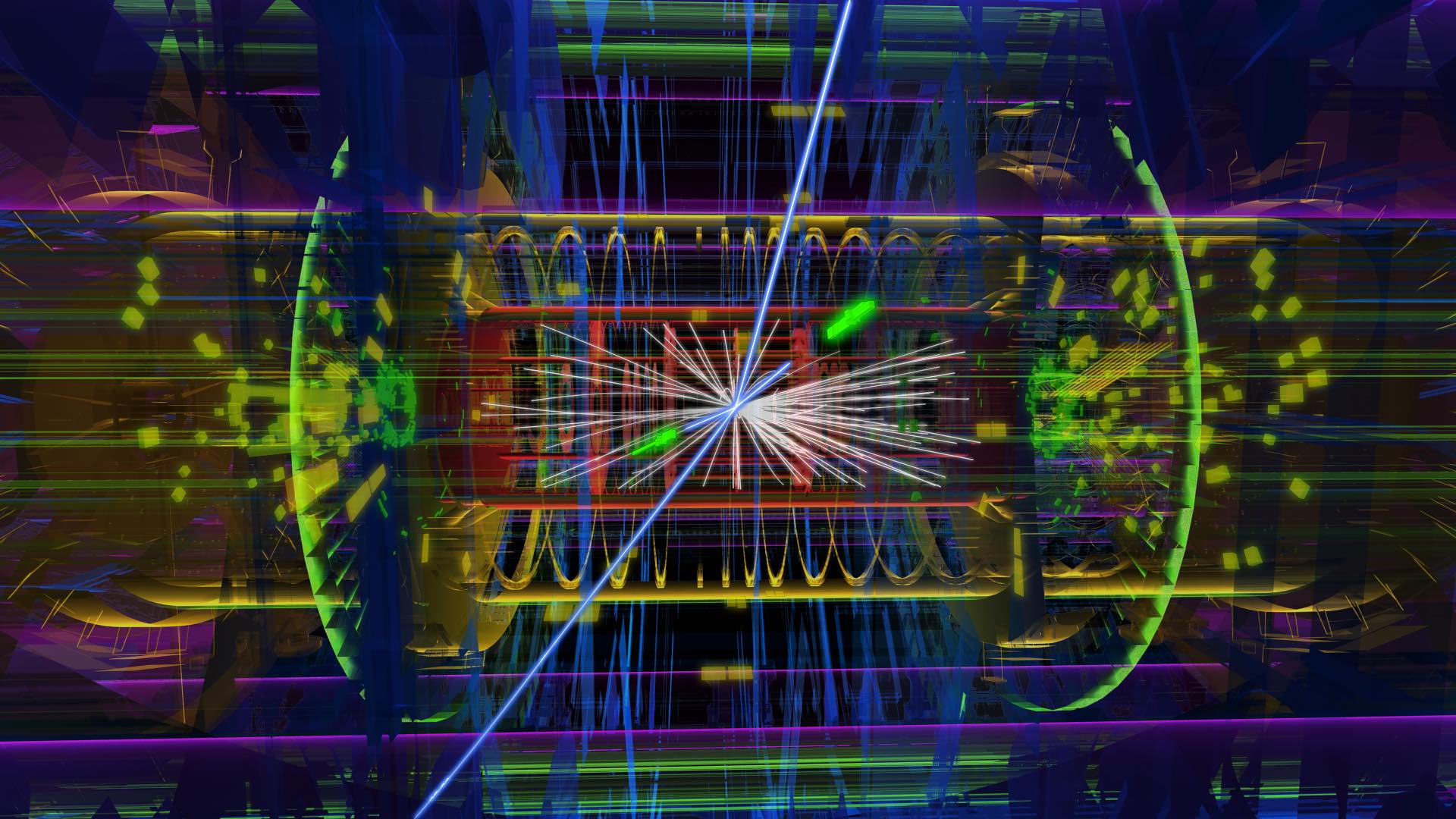The European High Performance Computing Joint Undertaking (EuroHPC JU) has selected two hosts for a new generation of EuroHPC supercomputers: The Jules Verne Consortium, who will host and operate a new exascale supercomputer in France, and Linköping University (LiU) in Sweden, who will host and operate Arrhenius, a new world-class mid-range supercomputer.
Picture: EuroHPC JU
Linköping University and the Jules Verne Consortium were selected as a result of a call for expression of interest, launched in December 2022.
Arrhenius will be especially suitable to tackle Artificial Intelligence/Machine Learning and other capacity demanding applications that need high memory bandwidth and fast data transfer to disk. It will furthermore will ensure the high-level of security and data integrity needed for research based on data on individuals and product development by private enterprises.
The new exascale supercomputer will be managed by GENCI (as hosting entity), the French national agency for High Performance Computing, and operated at the TGCC computing centre by the CEA (as hosting site), the French Alternative Energies and Atomic Energy Commission, in Bruyères-le-Châtel. Exascale supercomputers are systems capable of performing more than a billion billion calculations per second and with the newly announced exascale supercomputer in France, EuroHPC will have two of them.
European supercomputers
Arrhenius in Sweden and the new exascale supercomputer in France will be added to the current list of EuroHPC supercomputers:
- LUMI in Finland,
- LEONARDO in Italy,
- Vega in Slovenia,
- MeluXina in Luxembourg,
- Discoverer in Bulgaria,
- Karolina in Czechia,
- MareNostrum5 in Spain
- Deucalion in Portugal
The construction of two additional supercomputers is also underway:
The EuroHPC supercomputers are available to serve a wide range of European users, no matter where in Europe they are located, in the scientific community, as well as industry, and the public sector. SDU researchers can apply for resources on the EuroHPC machines via regular calls announced on the EuroHPC website.
More information
You can find more information about the two new EuroHPC supercomputers here:




